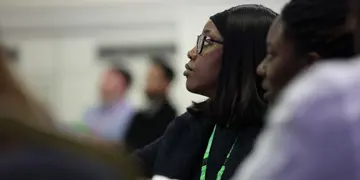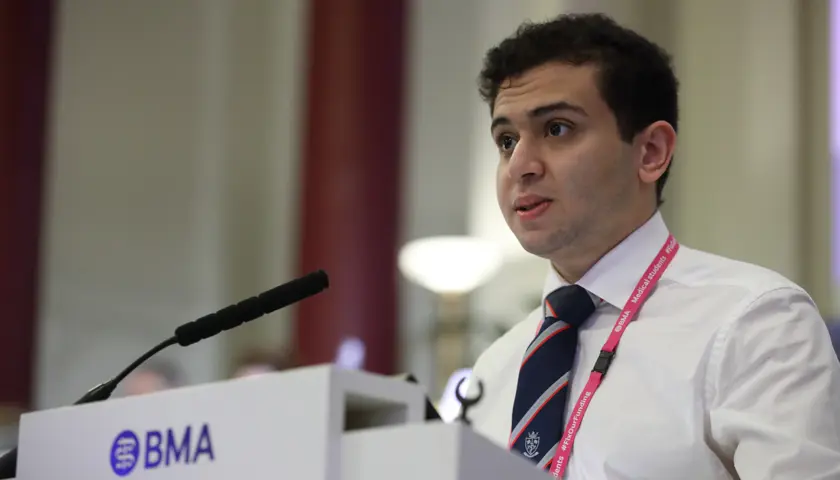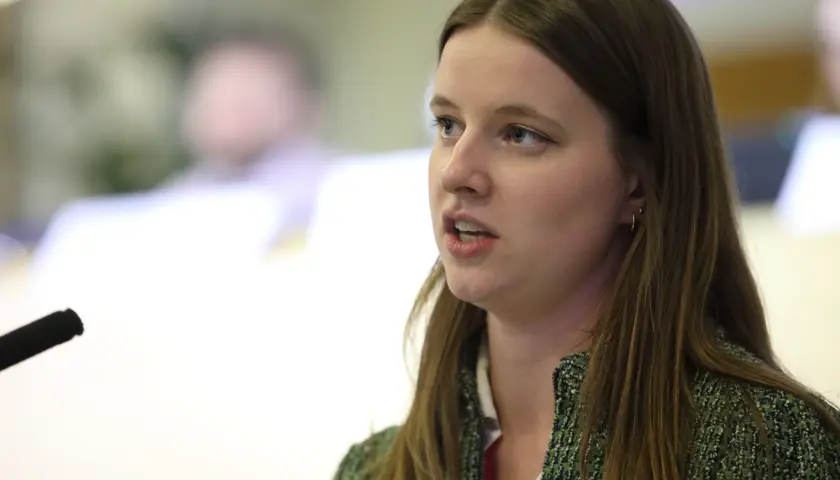Students call to expand specialty training places
Students call to expand specialty training places
BMA medical students conference hears demands to protect mental health and tackle sexism
The Government must seek to expand specialty training places and prioritise access for UK medical graduates, this year’s BMA medical students conference has agreed.
Medical students have backed calls for the BMA to lobby the UK Government to adopt policies which would prioritise access to specialty training for those graduating from UK medical schools, at a series of votes at the conference earlier this month.
The conference also saw student representatives support calls to maintain medical student intake numbers until ‘adequate postgraduate training opportunities’ become more readily available.
The endorsement of expanding training places and UK graduate prioritisation mirrors calls made last month by the association’s UK resident doctors committee and come at a time when failures in workforce planning have left many students and resident doctors fearing unemployment.
Applications to specialty training places have historically been oversubscribed, however competition ratios have soared in recent years with 2024 seeing 59,698 applications made for 12,743 available training posts, a 39.5 per cent increase on 2023.
In putting forward the successful motion to prioritise UK graduates, Sheffield medical student Omar Al-Rubaie warned that, while increasing the number of training posts was essential in the longer term, further action was needed to address a future crisis.
Value merit
He added that, by moving to prioritise domestic graduates, the UK would simply be adhering to an approach already being followed by other nations in the EU as well as Australia, Canada and the USA.
He said: ‘By adopting this policy, we will not be isolating ourselves or trailblazing an unknown path; rather, following a tried-and-tested method [adopted] by most that would work better for us than the current system [for] home students and international students alike.’
While acknowledging the underlying problem of the shortage of training places driving competition ratios, UCL medical student Radu-Alexandru Polschi opposed the idea that prioritisation should extend beyond foundation year one training.
He said: ‘Our goal should be to build an NHS that values merit [and] provides patients with the best care possible and rewards excellence, regardless of where a doctor obtained a degree.
‘Ultimately, if you want the NHS to thrive, we must work towards ensuring that the best doctors, wherever they come from, are the ones who get the posts; that means reforming the systems to reward the right qualities, not building more barriers.’
The crisis regarding access to training places formed a significant portion of the agenda for this year’s conference.
A successful motion put forward by the conference agenda committee called for an application process that would prioritise first access to UK graduates and international medical graduates already working in the NHS and expand foundation and specialty training programme posts.
Other motions endorsed by the conference included calls by Scottish BMA medical students committee for a pause in the expansion of medical school places unless ‘the quality of medical education and training can be guaranteed’ and adequate postgraduate training opportunities be made available.
With the theme of this year’s conference titled as ‘The person behind the doctor’, other areas of focus included efforts to promote awareness around student mental health, increasing the availability of financial support and widening participation.
Students at the conference also voted resoundingly in support of efforts to tackle sexism and sexual harassment in medical education, as part of a motion seeking to challenge the widespread failure of medical schools in England to sign up to the NHS Sexual Safety Charter.
The charter was introduced in response to multiple reports exposing the prevalence of sexual harassment faced by NHS staff, including the findings from the BMA’s 2021 Sexism in Medicine survey, which found 91 per cent of women doctors had experienced sexism in the workplace in the previous two years, with 31 per cent having experienced unwanted physical conduct.
Put forward by Cambridge University student Katherine Diss and Anya Soin from Nottingham University, the motion called for a recognition of the need for medical schools and NHS trusts to adopt shared principles on tackling inappropriate sexual behaviour to protect students on placement.
Ms Soin said: ‘Medical schools think they can slip under the radar in not signing the charter or taking accountability for the safety of their students and, at the moment, they’re doing just that.
‘We need the BMA to help us raise awareness of the fact that our schools do not want to take action to protect us, and we must stand up and advocate for ourselves.’
Working in conjunction with advocacy group Surviving in Scrubs, MSC is running an online survey inviting students to share their experiences of sexism and sexual violence in medical schools and clinical placements.
Reflecting on the conference MSC agenda committee member Daya Sumra gave thanks to all those that had taken part.
‘On behalf of all the agenda committee we would like to say a huge thank you to everyone who contributed to [the] debate, the MSC reps for organising their delegations and all those who participated in voting.
‘You all brought such enthusiasm to the conference, which this year saw some of the most compelling speeches and articulate speakers we have had to date resulting in high-quality debates and passing well-considered policies.'
For more information on any of the motions passed at this year’s MSC conference, please email info.students@bma.org.uk
(Image credits: BMA / Sarah Turton)





